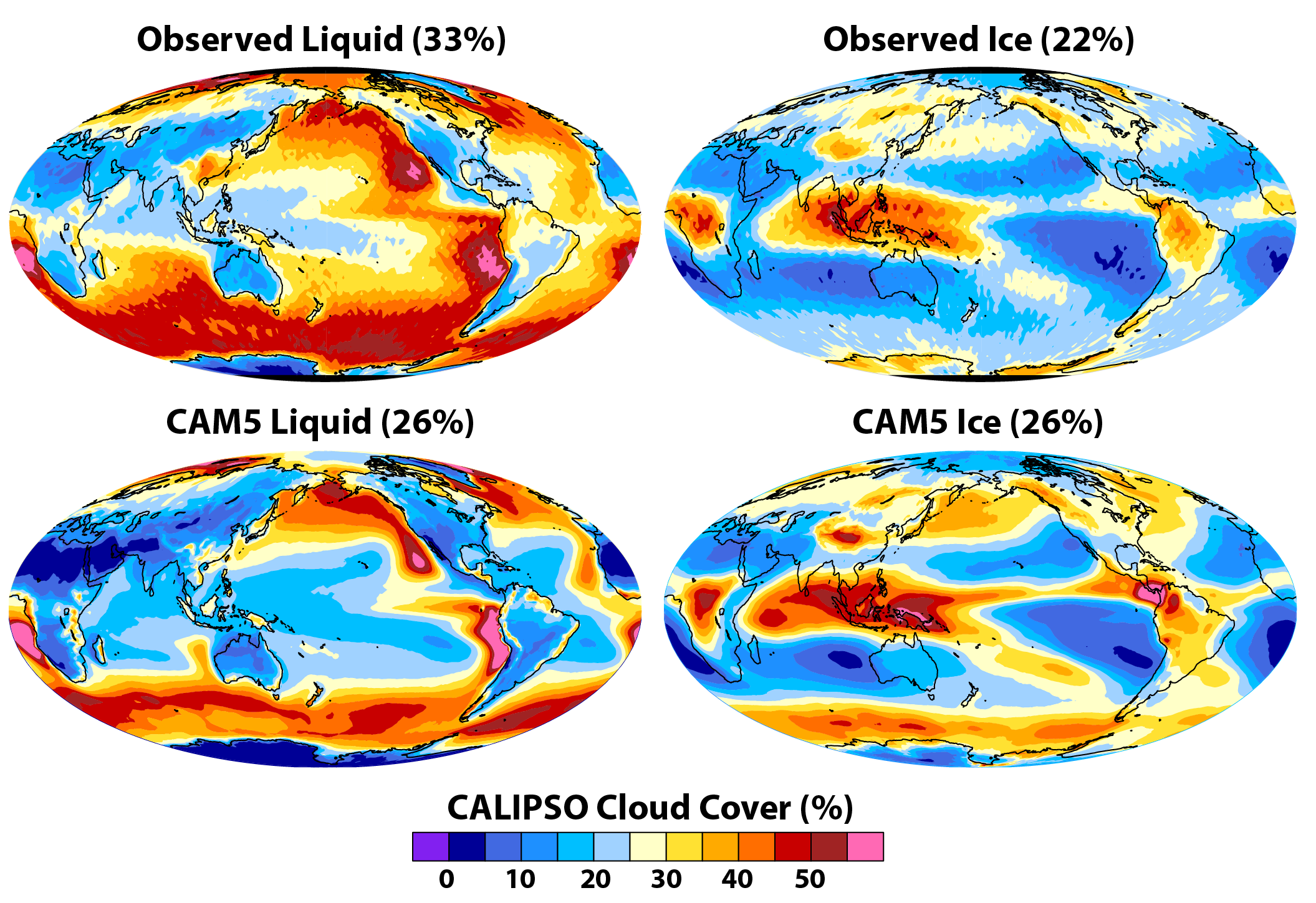Jen Kay – Dept. of Atmospheric & Oceanic Sciences at CU Boulder
Jen Kay is an assistant professor in the Department of Atmospheric and Oceanic Sciences and a Fellow of CIRES at the University of Colorado at Boulder. She remains a visiting scientist at the National Center for Atmospheric Research, where she worked prior to joining CU Boulder. Dr. Kay researches polar climate change, feedbacks, and variability, with a specific focus on connecting global coupled climate modeling with observed cloud, precipitation, and sea ice processes. She works at the nexus of observations and modeling to understand the processes controlling climate change and variability.Current Research
Going Global: The influence of clouds on large-scale climate dynamics
We primarily work in polar regions, though lately we have been going global! Together with collaborators at Laboratoire de Meteorologie Dynamique (Helene Chepfer) and McGill University (Line Bourdages), our 2016 JGR-Atmospheres paper evaluates cloud phase in the atmospheric component of a global coupled climate model using spaceborne lidar observations. Our scale-aware and definition-aware comparisons enabled us to motivate improvements to the model clouds, and to fix two long-standing model biases: excessive absorption of shortwave radiation over the Southern Ocean and insufficient absorption of shortwave radiation over the Tropics. Our 2016 J. Climate paper evaluates the impacts of these improvements on the mean state climate, while our 2017 Climate Dynamics paper led by ATOC Ph.D. candidate Bill Frey evaluates the influence of these improvements within climate change experiments. ATOC Ph.D. candidate Ariel Morrison uses spaceborne lidar to isolate the observed cloud response to Arctic sea ice variability. ATOC Ph.D. candidate Vineel Yettella recently published a Climate Dynamics on precipitation changes in extratropical cyclones in a warming world, and is now developing and applying a framework for decomposing climate predictability into components and the teleconnections between them.

